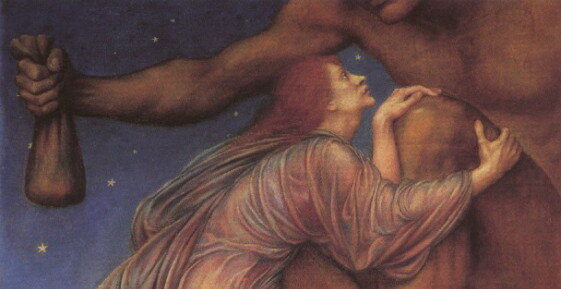Pervez Hoodbhoy: Islam and science – unhappy bedfellows

Science without the scientific method simply does not work, says Pervez Hoodbhoy. That is the problem Muslim societies have to confront
The devastating earthquake of last October shook the foundations of not just the buildings of northern Pakistan. It also showed how shallow the underpinnings of science are even among the graduate physics students that I teach at Quaid-i-Azam University in Islamabad. As the university buildings shook and windows rattled, teachers and students rushed out. Some gave the azan (the call to prayer) while others begged Allah for forgiveness and prostrated themselves.
My subsequent discussions with students on the earthquake revealed the following disturbing attitudes. Almost a third of our physics MSc students believe that the earthquake was caused by sinfulness, moral laxity, deviation from the Islamic true path and so on. They were not swayed by arguments that the victims were innocent – more than 10,000 children were killed as 8,000 schools and madrasahs collapsed into rubble. Nor were they persuaded by the fact that mosques were hit just as hard – or even harder – than other buildings.
Another third of students appeared to reject the “divine retribution” thesis because of the toll on innocents, but believed that this tragedy was a divine warning to mend our ways. They accepted plate tectonics as a possible explanation, but insisted that the plates moved only with permission from above.
Although there was no clear articulation, only a couple of muffled voices supported the scientific view that earthquakes are a natural phenomenon unaffected by human activity.
A golden age?
This profound lack of scientific understanding in an Islamic country is odd given the bold progress that is often claimed for Islam and science.
Ziauddin Sardar, a Pakistani scientist and journalist, has asserted in Britain’s New Statesman: “Now Muslim leaders are planning its revival and hope to restore a golden age.” These are brave words. There is no visible evidence to suggest significant collective activity. The websites of the Islamic Academy of Sciences, the Islamic Educational, Scientific and Cultural Organization, and the Organization of the Islamic Conference Standing Committee on Scientific and Technological Cooperation prove my point. The sum of their combined activities over the past decade amounts to sporadically-held conferences on disparate subjects, a handful of research and travel grants, and some small sums for repair of equipment and spare parts.
Government heads and science ministers often make similar claims of progress at conferences dedicated to science and Islam. But these appear largely ritualistic. Having attended a few, my impression is that the benefits are confined to fine meals and frequent-flyer miles. Nonetheless, there is a strong desire among Muslims to show the conformity of science with Islam. This is both because of memories of our ancient greatness and because we understand well the crippling weakness resulting from that lack of science.
To see how intense this desire is, all that one needs is a visit to Google. My last keyword search on “Islam and science” yielded 187,483 entries. Unfortunately, most have nothing to do with real science. The one with most visitors has a banner: “Recently-discovered astounding scientific facts, accurately described in the Muslim Holy Book and by the Prophet Muhammad (praise be upon him) 14 centuries ago.” Others demonstrate how science has “proved” the truth of Islam and, conversely, that every known scientific truth can be traced back to the Koran. Many seek to show that the birth of modern science would have been impossible but for Islam and Muslims. Among the most popular are those containing 19th century-style arguments against Darwinism.
I could not, however, find any websites dealing with the philosophical implications of the theory of relativity, quantum mechanics, chaos theory, strings, stem cells and so on. Antiquity alone seems to matter. A surfer leaves with the feeling that the Islamic science clock stopped sometime in the 14th century and that plans for repair are vague, at best. Taking refuge in the past is sad but understandable, because in modern times every form of intellectual endeavour in Islam – not just science – stands in poor health.
In a stunning indictment of the Arab world, the Arab Human Development Report 2002, written by Arab intellectuals, concluded that Arab societies are crippled by a lack of political freedom and knowledge. High-quality, mind-opening education is virtually non-existent. Half of all Arab women cannot read or write. The facts point to a bleak situation: “The entire Arab world translates about 330 books annually, one-fifth the number that Greece translates,” says the survey. It adds that in the 1,000 years since the reign of the Caliph Maa’moun the Arabs have translated as many books as Spain does in a year.
Intellectual rubble
Closer to home, in Pakistan, the widely-acknowledged crisis in higher education understates the problem. Pakistan’s public (and all but a handful of private) universities are intellectual rubble, their degrees of little consequence. With a population of 160 million, Pakistan has fewer than 20 computer scientists of sufficient calibre to get tenure-track faculty positions at some B-grade American university. Even if you roped in every good physicist in the country, you couldn’t staff a single respected department of physics. Mathematics is yet more impoverished. To claim that there are even five able mathematicians in Pakistan would be to exaggerate. According to the Pakistan Council for Science and Technology, Pakistanis have succeeded in registering only eight patents internationally in 57 years. The state of social sciences is scarcely better.
Iran and Turkey offer some relief in an otherwise bleak situation. Their universities and schools appear to be of higher quality, and scientific research more fruitful and advanced. Nevertheless, you seldom encounter a Muslim name in scientific journals. Muslim contributions to pure and applied science – measured in terms of discoveries, publications, patents and processes – are marginal. Muslims are conspicuous by their absence from the world of ideas and scholarship.
An exception was professor Abdus Salam who, together with Americans Steven Weinberg and Sheldon Lee Glashow, won the Nobel Prize for Physics in 1979. Salam was a remarkable man, who loved his country and religion. Although he was born Muslim, he died non-Muslim because the Ahmadi sect, to which he belonged, was expelled from Islam by the Pakistani parliament in 1974.
The harsh truth is that science and Islam parted ways many centuries ago. In a nutshell, the Muslim experience consists of a golden age of science from the ninth to the 14th centuries, subsequent collapse, modest rebirth in the 19th century, and a profound reversal from science and modernity, beginning in the last decades of the 20th century. This reversal appears, if anything, to be gaining speed.
Trained to hear and obey
Did science divorce Islam? Or was it Islam that divorced science? To be sure, any highbrow academic can trot out a dozen different explanations for the rift that emphasize – to different degrees – Islamic history, philosophy, colonial and post-colonial politics and economics.
Subjectively, as I teach my graduate-level physics classes in Pakistan’s premier public-sector university, a gut feeling is impossible to avoid. Row after row of burqa-clad women, with only eyes visible, and bearded young men obediently record what I say and write, including my occasional mistakes. In this highly-typical, conservative, lower-middle-class student population, trained in a traditional mode to hear and obey, it is unusual to question the teacher.
Although science is studied because it is a bag of useful tricks, one suspects that the scientific method – which demands critical inquiry and evaluation – is not acceptable to an overwhelming majority of Pakistani science students. Hence it remains a foreign, unwelcome, graft.
The schism between science and Islam has widened with time. Following the lead of Renaissance thinkers, Muslim reformers of the 19th century, such as Syed Ahmad Khan, argued that miracles and divine intervention in physical processes must be understood in broad allegorical terms rather than literally. Drawing on the rationalist (Mutazilite) tradition of Islam in the ninth century, they insisted on an interpretation of the Koran that was in conformity with the observed truths of science, thereby doing away with commonly-held beliefs of the Great Flood and Adam’s descent from heaven. It was a risky proposition then, but far safer than it is today.
CV Pervez Hoodbhoy
Pervez Hoodbhoy is professor of nuclear and high-energy physics at Quaid-i-Azam University in Islamabad, and visiting professor at MIT and the Stanford Linear Accelerator Center, among other institutions. He wrote Islam and Science – Religious Orthodoxy and the Battle for Rationality.




